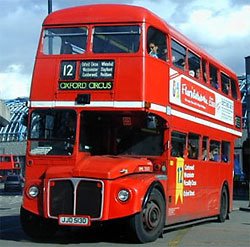The bottom line is that
Qantas and
Air New Zealand should be able to operate their businesses in whatever way they wish. The airlines could adopt a policy of seating people man-woman-man-woman, or putting all men in the front, women in the back, or segregating people by race if they wanted to, and the state should not intervene. The bottom line being, the airline owns the planes and should be able to do whatever it likes – Air NZ almost always upgrades me on request and gives me seating I request. It could tell me to get fucked and sit down the back if it wanted, but it doesn’t. The airlines are presumably acting in accordance with customer demands – and the rationality of them is not the first issue – the first issue is that if you want to send your child unaccompanied on a flight, then if you want the airline to sit a certain type of person beside your child, and the airline agrees – (and the person sitting beside has no problem with it) then it is not anyone else’s business.
This applies readily to Qantas – it is a private company. Air NZ while publicly listed, is majority state owned – and questions can be raised as to whether it should ever act in a way offensive to its shareholders (i.e. N.Z. residents). Well, as it is a commercial investment (and the government cannot intervene in the decisions of the board or management on such matters), it should act according to its commercial interests and it appears to be doing so. If Air NZ revoked this policy, it would probably lose some business to Qantas for unaccompanied children – but would be unlikely to gain business from men. Very few men would say they wont fly on an airline because there is no chance of sitting beside a child – except those you might not want to! The airlines are reacting to consumers.
However, this doesn't mean I like the policy.
So what about the reasoning behind this, that causes the airline to respond and people to fear men?
There has been a concerted picture painted of men in the last 25 years as being potential rapists and child molesters – and the statistics bear out the fact that most cases of child sexual abuse involve men - but also that most cases involve men in the same household as the child. So we are talking about a very tiny risk. The implications of this policy are that there is a social trend to fear men having contact with children. This is not because child abuse has increased, there is little evidence of that as children have been getting abused throughout history, and it is only in the last 20 years that the complaints of children have been listened to and given credence in court (although in some cases, the evidence gatherers have manipulated children to giving them the answers that they wanted, rather than the facts).
So parents and caregivers (funnily enough, the categories most likely to abuse) are terrified of the man next door, the teacher, the coach, the priest, Uncle X and now the man on the plane. What is next? The man on the bus? Will men be not permitted to be located next to children in any cases without another adult present? What does this do for men who like working with children (it is sad that this is always a lead up for a joke that says “not THAT way”)?
Speaking of buses, I would say the odds of a dodgy man sitting beside a child go up enormously for long distance bus and train trips - largely because the driver or crew are not keeping an eye on passengers most of the time, and because the trips are a lot longer (and the passengers dodgier - with the exception of foreign tourists, the only men who travel alone on long bus and train trips are those who can't afford to fly or drive, or aren't allowed! Last time I caught a bus out of necessity, it was backpackers, the poor and former convicts travelling).
As I grew up, I encountered adult men as Santa Claus, customers of my parents’ shop, relatives, neighbours, people on holiday, and only in a very few cases did my parents warn me of one or two. Despite the popular myth, in most cases dodgy pedophilic men are easy to identify – and half of the answer is not to wrap children in cotton wool, but to encourage them to look after themselves. If someone (man or woman – women do this too, in small numbers, but those that do almost always get away with it because nobody believes it happens) does anything that makes a child feel uncomfortable, they should stop – tell them no and that they will tell someone, or hit them. Far better for a child to know how to respond to this, especially girls who are a greater risk of having creeps hitting on them in their teens than boys are.
One of the other myths is to ignore teenage boys. Teenage boys engage in far more sexual contact with children than men do, because they have more access, have almost nothing else on their minds and are trusted. Something around a third of all those getting treated for being sexual abusers are teenagers – so fear them too.
In short, I think Keith Locke is right in his assessment of the issue, in that there needs to be an end to irrational fear of men - as it has caused men to drop out of early childhood education and reduce positive contact men have with children - but he is wrong to ask the Human Wrongs Commissariat to intervene, particularly against Qantas, as it is privately owned. I find it interesting, though, that the lefties
who would demand blood if Air NZ segregated passengers by race or gender or sexuality (what if a frequent flyer said they don't want to sit beside dark skinned people?), has no problem with this discrimination, presumably because it applies to men. I wonder how such people would react if the airlines seated known Muslims in the back of the plane out of fear of terrorism (
David Farrar mentioned this too coincidentally)? It would also be irrational - but because it applies to Muslims (who don't have power in the leftwing subjective fantasyworld where white straight men have all the power and never get abused). Dr Cindy Kiro (the Children's Commissioner) has supported what the airlines are doing - but then if it became illegal for men to be within 10 metres of children without a permit, she'd probably cheer it on as the great advocate for state intervention that she is.
It is unfortunate that people think their children are at risk on planes with men – this is so incredibly unlikely, and it is very sad that people fear their children being hurt at every corner by men. The odds are very very low that children will be molested by strangers. As with Cathy, I am happy to have NOBODY sitting beside me on a flight, although I’d rather a quiet child than someone 20 stone (like certain bureaucrats).
The real issue are the social attitudes that have been taught and promoted by those who have a gender based collectivist agenda - the type that claimed that 1 in 3 fathers molest their daughters (TVNZ ran a telethon based on this fiction in the 1980s) - the type that regard a man complimenting a woman on looking sexy as being abusive - the type that are the feminist Taliban of our world, that listen to Catherine Mackinnon and Andrea Dworkin describing consensual heterosexual intercourse as effectively never being consensual!
However, the answer is over to you. It is up to the airlines what they do, and consumers. Once again, the Greens have shown their love for state violence to intervene - they want the state to use force against the airlines to stop this.
This is not the answer.
If you don't like this policy, try an airline that doesn't do it (Origin Pacific for example) or travel another way, or put up with it. As for me, as long as I get the seat I want and preferably have no one sitting beside me (unless they are interesting and hot), then I'm not too perturbed. However, I will tell any flight attendant who forces me to shift a previously allocated seat to get fucked - unless I don't like who I am sitting beside :)
This is not about the airlines, it is about a bigger social attitude that says that men having contact with children is risky - well on that basis, because 50% of men in prison are Maori, anyone having contact with Maori men is at a bigger risk of becoming a victim of a crime. If you want to change this, then it is up to men and women who aren't suspicious of men to reject it - as consumers. The airlines are reacting to consumers, simple as that.









